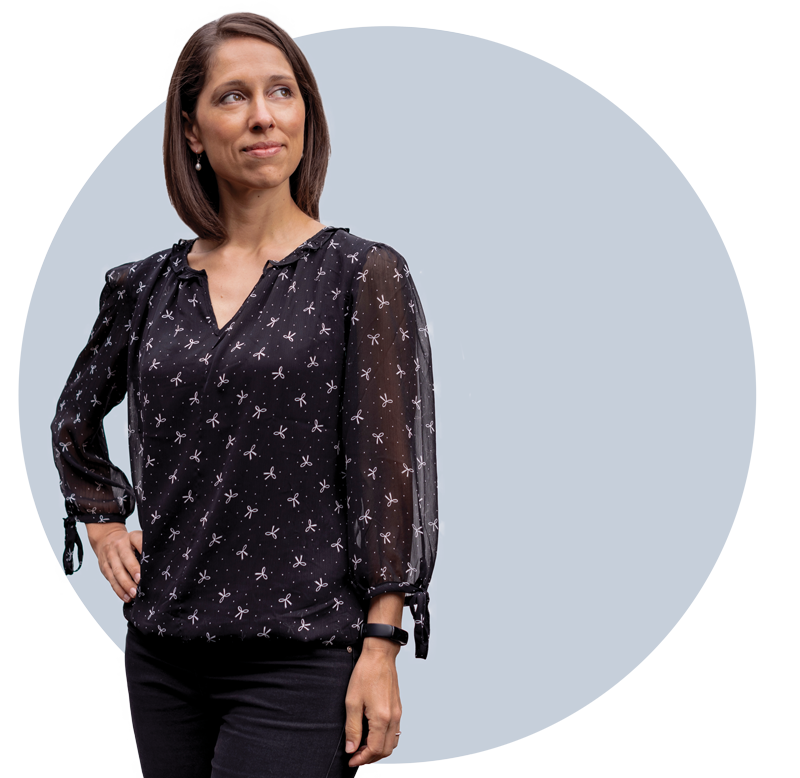How does breast milk affect a baby’s microbiome? It’s one of the many questions Meghan Azad is focused on answering through her work on infant nutrition and the microbiome in child growth and development.
“People have been studying breast milk for a long time. But to be honest, not that many people. It’s surprising when you think about it, given how important breast milk is to our species,” explains Azad, a Fellow in the Humans & the Microbiome program and an associate professor at the University of Manitoba. She is also a Tier 2 Canada Research Chair in the Developmental Origins of Chronic Disease.
The list of what Azad analyzes in breast milk is a long one and combines her expertise in molecular biology, epidemiology, statistics and nutrition.
“We look for various nutrients, enzymes, hormones, antibodies, immune factors, microbes, metabolites, and so on. The idea is, if we analyze everything in the milk and then look at it all together, we can understand how breast milk influences the microbiome, gut health, immunity and growth. It’s the new way of thinking about human milk as a ‘biological system.’”
“From a pretty early age, I knew I wanted to do this as a career.”
Azad’s work in this area garnered attention from the Bill & Melinda Gates Foundation. She is currently leading an international study comparing breast milk in different settings and examining how breast milk is related to the growth of infants. The study is supported by Azad’s human milk biorepository at the Manitoba Interdisciplinary Lactation Centre (MILC), which she co-directs with colleague Dr. Nathan Nickel at the Manitoba Centre for Health Policy.
Azad is also deputy director of the CHILD Cohort Study, a national pregnancy cohort study following 3,500 families to understand how early life experiences shape lifelong health. The study began more than a decade ago, collecting information from pregnancy onwards, with children in the study now nearing their teenage years.
And amid the COVID-19 pandemic, Azad is among the many researchers to study its effect on the human population. Supported by a CIFAR Catalyst Fund, Azad collaborated with Humans & the Microbiome fellows Katherine R. Amato and Maria Gloria Dominguez-Bello on how the pandemic might affect infants’ microbiomes.
“Our focus is on early life — babies are born sterile, and then they get colonized by the first microbes they meet. We are wondering, during a pandemic when everything is super clean and family and friends aren’t coming into contact with the baby, how might that have an impact on the developing microbiome?” Azad, who grew up in Winnipeg, says her interest in children’s health goes back to when she was 10, after being diagnosed with asthma.
“At one of my appointments, the doctor talked to my parents and asked if they would involve me in a clinical trial for a new asthma drug,” she explains. “I would record my lung function every day and I’d go in to the hospital for tests, and I started asking, ‘why am I doing this?’ And the answer was to help other kids with asthma, because this is a research study. From a pretty early age, I knew I wanted to do this as a career.”
Related Articles
-
CIFAR signs San Francisco Declaration on Research Assessment
December 09, 2024
-
Graham Taylor, Vector Institute: Using AI to track insect biodiversity loss in real time
November 29, 2024
-
Ross Mitchell, Amii: AI note-taking for doctors
November 16, 2024
-
Data Communities for Inclusion: Recentering technology in the knowledge and well-being of the collective
November 14, 2024
